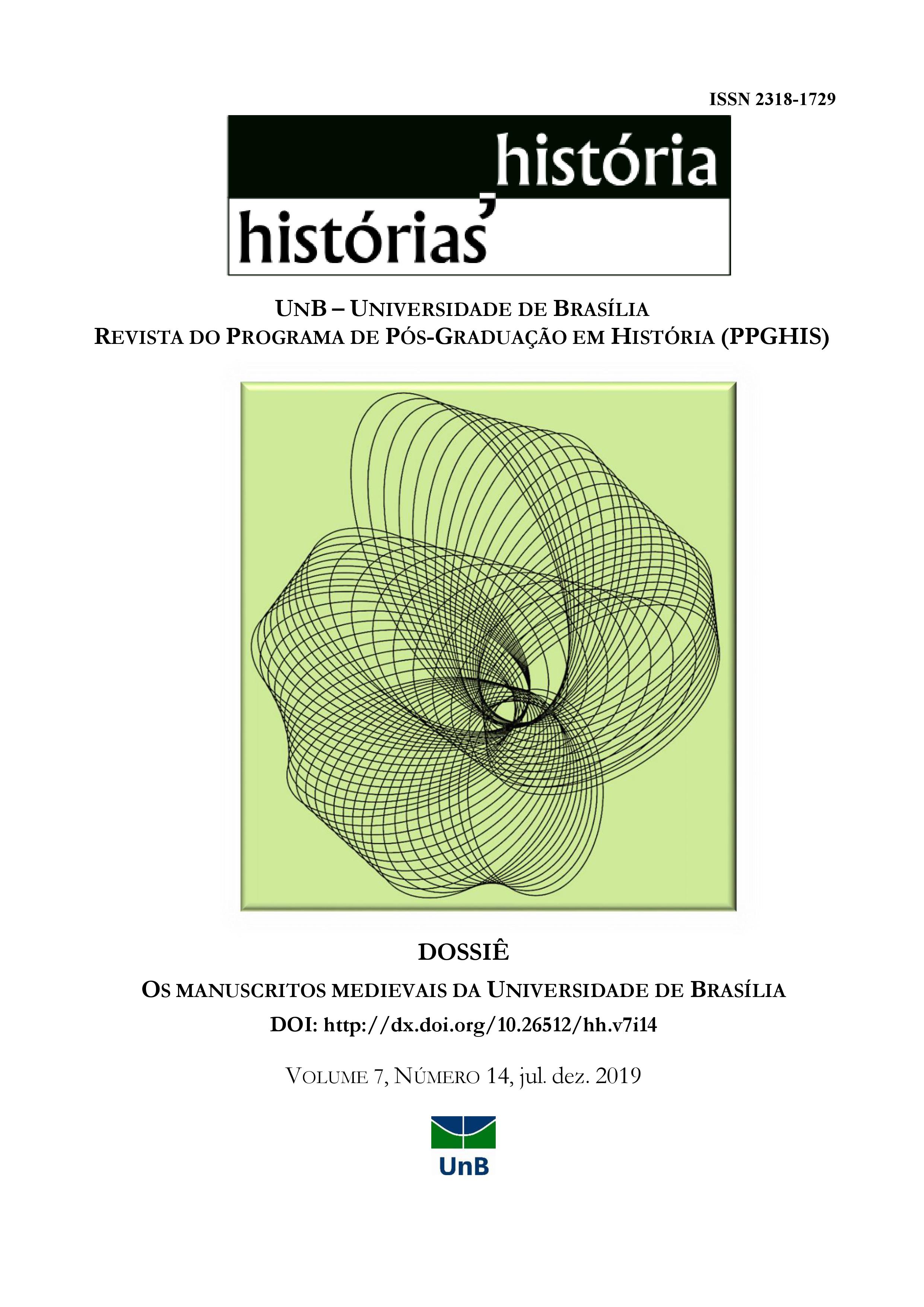A trecentist monument: the linguistic heritage of Serafim da Silva Neto’s manuscripts
DOI:
https://doi.org/10.26512/hh.v7i14.19307Keywords:
Linguistic monumento. Serafim da Silva Neto’s Manuscripts. Livro das Aves. Diálogos de São Gregório. Flos Sanctorum.Abstract
Livro das Aves, Diálogos de São Gregório and Flos Sanctorum undoubtedly comprise a monumental treasure, to which the writing and the historical solidification of the Portuguese language yield meaning. Diverted from the original space of production in the Portuguese Middle Age, they transported, from the 14th century to the present, a language in the veiled silence of parchment, and since 1950, such documents are the oldest written in Portuguese language in Brazil. Considering that monuments not only represent a crystallized history consisted of social confluences and non-confluences, but, especially, allow the apprehension of the movements and the contours of societies that construct them, some linguistic aspects are therefore discussed in order to prove the greater value of this documental collection, resting on the possibility that such documents represent the variation and the change processes in the historical constitutional procedures of the Portuguese language, during a period when the controls of a standard norm was still in an embryonic stage. The linguistic-literary memory they carry reveals the vivacity of language phenomena, whose rules and standards have not disappeared but continue to propagate in Brazilian Portuguese, as evidenced by the several researches in Historical Linguistics based on these documents, in Brazil and abroad.
Downloads
Downloads
Published
How to Cite
Issue
Section
License
Authors who submit papers with this journal agree to the following terms:
a) Authors retain copyright and grant the journal right of first publication with the work simultaneously licensed under a Creative Commons Attribution License that allows others to share the work with an acknowledgement of the work's authorship and initial publication in this journal.
b) Authors are able to enter into separate, additional contractual arrangements for the non-exclusive distribution of the journal's published version of the work (e.g., post it to an institutional repository or publish it in a book), with an acknowledgement of its initial publication in this journal.
c) Authors are permitted and encouraged to post their work online (e.g., in institutional repositories or on their website) prior to and during the submission process, as it can lead to productive exchanges, as well as earlier and greater citation of published work.




